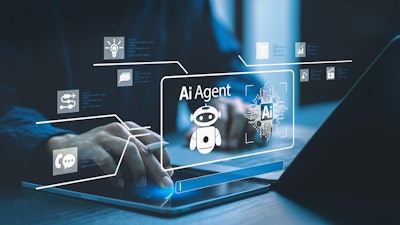
Expanding AI use has become the No. 1 priority for technology leaders, with 73% identifying it as their primary focus in 2025, according to part two of the 2025 Reveal Software Development Challenges Survey, released by Infragistics.
The data shows widespread momentum; 75% of organizations already leveraged AI for software creation in 2024, and of those who haven’t, 50% plan to adopt it in 2025.
“AI is accelerating innovation across the software development lifecycle, streamlining tasks from code generation to testing and deployment,” says Casey Ciniello, Reveal and Slingshot senior product manager, Infragistics. “However, integrating AI into development workflows introduces critical considerations—particularly around accuracy, data integrity, security vulnerabilities, and compliance. Organizations must implement governance frameworks and technical safeguards to ensure safe, strategic implementation.”
Key takeaways:
· The main driver of AI adoption is task automation to boost productivity, more than half the survey respondents (55%) said. Other notable ways companies are using AI in software creation include optimizing code (48%); improving diagnostics (46%); testing software (46%); fixing coding errors (43%); eliminating repetitive or administrative tasks (43%); creating personalized experiences for customers (41%); reducing development time/improving productivity; and addressing limited resources (28%).
· More than one-third (37%) of respondents flagged the risk of errors, bugs, and inefficiencies in AI-generated code—issues that could compromise reliability and performance. Equally troubling, another 37% highlighted the potential for security vulnerabilities, underscoring the urgent need for robust safeguards as AI becomes more deeply embedded in critical systems.
· Data privacy emerges as the most pressing concern, with 78% of respondents citing it as their top issue. Transparency (57%) and data safety (55%) closely follow, reflecting widespread unease about how AI systems are developed and deployed. In response, companies are taking action: over 60% are implementing ethical AI guidelines, 59% are implementing formal privacy policies to protect against misuse, and 54% are introducing protections for sensitive information.
· Privacy violations (38%), bias in AI models (37%), and the deployment of AI applications that have not been securely tested (36%) are among the most pressing concerns for organizations in 2025. These risks not only threaten user trust but also expose companies to legal and reputational fallout. As AI and software development continue to converge, organizations must take a proactive approach to governance and risk mitigation.
· Among companies that have adopted AI, 55% reported new job creation, with 63% of those adding up to 25 new positions. AI isn’t replacing talent—it’s reshaping roles and creating new opportunities in a rapidly evolving tech environment. This shift underscores a growing consensus: successful AI integration is about empowering teams, not replacing talent.




















